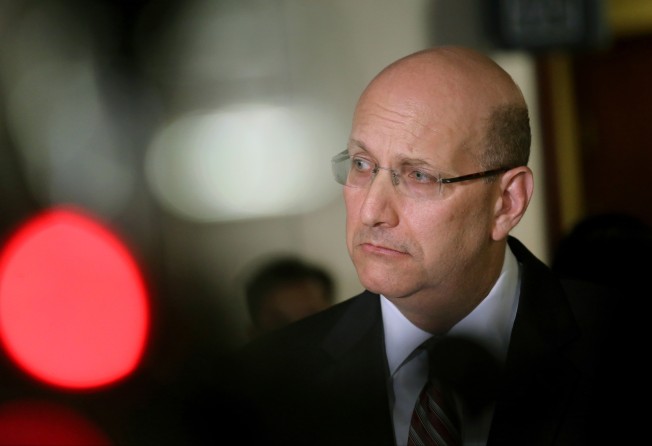Officials need to improve monitoring of MTR

There can be no dispute that the government and MTR have done a bad job in delivering the HK$67 billion high-speed railway to Guangzhou on time. That the public had been kept in the dark about the delay makes it even more regrettable. Only under mounting pressure did the transport and MTR chiefs come clean on the tussles behind the scene last Friday, which, unsurprisingly, fuelled accusations that the two had colluded to cover up the delay. Even though they have rejected such claims and apologised for the dismay, the public is still understandably enraged.
It is, however, too early to call for resignations. The government and the railway corporation have each launched a review of the system. The independent expert panel to be appointed by the chief executive will examine the project management and supervision mechanism, while non-executive board directors of the MTR will separately look into the delay. The probes are expected to provide more evidence, which can help to apportion blame and punishment.
Delays for projects of such scale are not unusual. The question is whether the public has been misled. In hindsight, transport minister Professor Anthony Cheung Bing-leung wrongly gave the benefit of doubt to MTR chief executive Jay Walder, who assured Cheung that the company could push contractors to catch up so long as 2015 remained the target schedule. Walder was overconfident. Even though the pair denied any intention to lie, the public has not been given the whole truth.
The 26-kilometre railway has been touted as the world's most costly to build by length - and the two-year delay will no doubt push up the bill. The government has rightly sought legal advice on whether the MTR should foot the extra cost.
More importantly, a better monitoring mechanism is needed to prevent similar problems in the future. The controversy gives officials the opportunity to reassert control over the MTR, which is often criticised as an independent kingdom without government oversight. It currently serves five million passengers a day and is building another five rail lines. As Cheung said, a recent series of technical glitches had already rocked confidence in the system. The high-speed railway saga raises further concerns over its governance and accountability. The government should learn a lesson and ensure the MTR can uphold its reputation as a world-class railway operator.